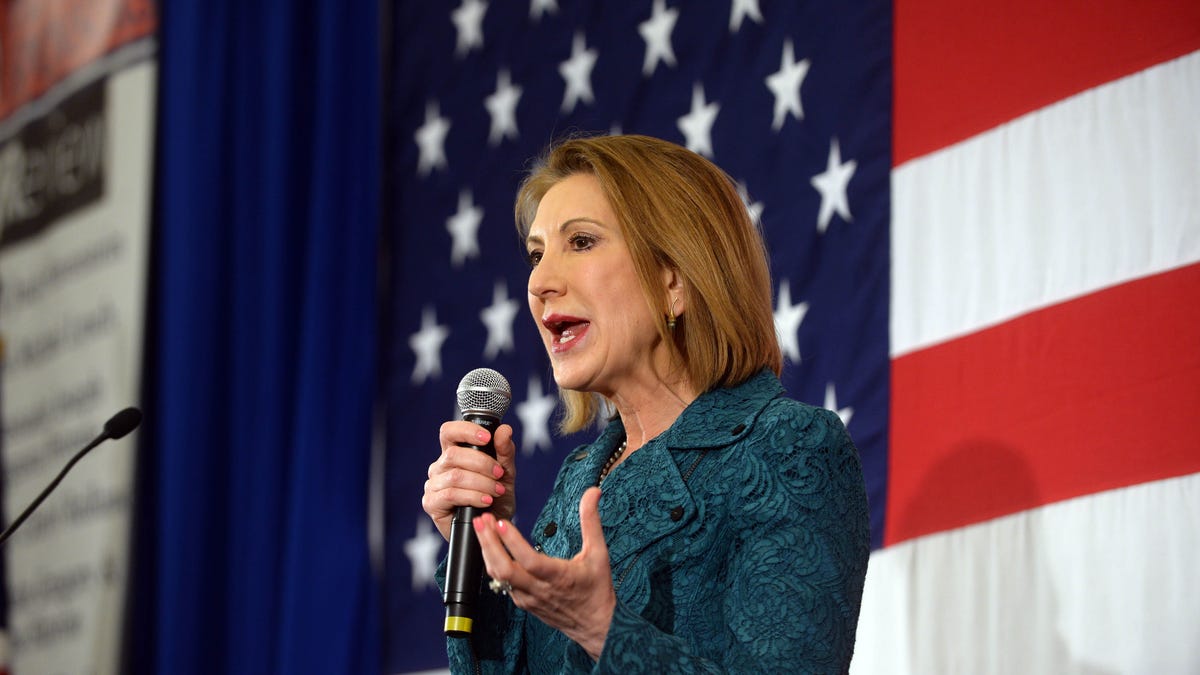Cruz names Fiorina as his running mate
GOP presidential hopeful Ted Cruz says former HP CEO Carly Fiorina will be his vice presidential candidate if he wins the nomination.

Republican presidential candidate Ted Cruz said Carly Fiorina will be his vice presidential running mate if he takes the nomination from front-runner Donald Trump.
"She is careful. She is measured. She is serious," Cruz said Wednesday at a rally in Indianapolis. "She doesn't get rattled."
The move, which could help Cruz attract more female voters than Trump, could mark the third time a woman has been a candidate for vice president. Geraldine Ferraro was Walter Mondale's running mate on the Democratic ticket during the 1984 campaign, and Sarah Palin was John McCain's running mate on the Republican side in the 2008 presidential race.
Fiorina, 61, suspended her own bid for the White House in February after finishing seventh in the New Hampshire primary.
"This is a fight," she said after taking the stage at Indianapolis. "This is a fight for the soul of our party and the future of our nation. I've had tough fights all my life. Tough fights don't worry me a bit."
Fiorina has worked in the technology industry her entire career; she first joined AT&T as a management trainee in 1980. Ten years later, she was a senior vice president at the company, making her AT&T's first female senior-level executive.
By the mid-1990s, Fiorina had become a "name" inside the technology industry -- first by planning the 1996 initial public offering of AT&T-spinoff Lucent Technologies and then becoming group president of Lucent's global service business in 1997. In 1998, she was named "the most powerful woman in American business" by Fortune.
She made headlines the following year when Hewlett-Packard appointed her its first woman CEO, succeeding Lew Platt. She was also the first woman to head a Fortune 20 company. Her time at HP, though, was filled with tension and controversy. In September 2001, she announced that HP would acquire Compaq, then the second-biggest PC maker after Dell, for $25 billion in stock.
That acquisition not only made HP the world's biggest PC maker, it also put Fiorina at odds with the company's board, notably Walter Hewlett, son of co-founder Bill Hewlett. He fought to take control away from Fiorina and waged a near-constant war of words against the Compaq purchase.
She also faced criticism for changing HP's corporate culture from caring, which some called "complacent," to one that rewarded performance over tenure. By 2005, HP's board decided it could no longer work with her and forced her to resign. In her book "Tough Choices," Fiorina described directors' behavior as "amateurish and immature."
Fiorina had dipped into politics before. She served as an economic advisor to McCain during his presidential bid. In 2010, she made a failed bid for a US Senate seat in California against incumbent Barbara Boxer.

